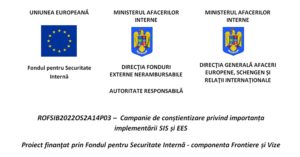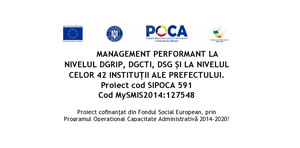The withdrawal process of the United Kingdom from the European Union (Brexit) was completed on 31 January 2020. Consequently, the Withdrawal Agreement ratified by both parties entered into force on 1 February 2020 and provided a transition period until 31 December 2020. During the transition period United Kingdom retained all the rights and obligations of a Member State, even if no longer participated in the decision-making mechanism and it was no longer represented in the EU institutions.
 In accordance with Regulations (EU) no. 1861 and 1862/2018, the European Commission is organizing an information campaign on SIS, in collaboration the national supervisory authorities and the European Data Protection Authority. The campaign aims at informing the public about the objectives of SIS, the data stored in SIS, the authorities having access to SIS and the rights of data subjects. The date of operationalization of the new Schengen Information System was set by the European Commission for March 7, 2023
In accordance with Regulations (EU) no. 1861 and 1862/2018, the European Commission is organizing an information campaign on SIS, in collaboration the national supervisory authorities and the European Data Protection Authority. The campaign aims at informing the public about the objectives of SIS, the data stored in SIS, the authorities having access to SIS and the rights of data subjects. The date of operationalization of the new Schengen Information System was set by the European Commission for March 7, 2023

























